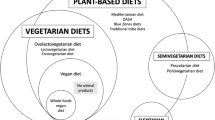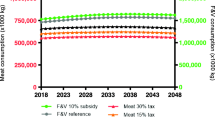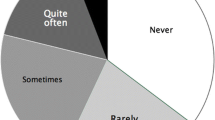Abstract
Some arguments for moral vegetarianism proceed by appealing to widely held beliefs about the immorality of causing unjustified pain. Combined with the claim that meat is not needed for our nourishment and that killing animals for this reason causes them unjustified pain, they yield the conclusion that eating meat is immoral. However, what counts as a good enough reason for causing pain will depend largely on what we think about the moral status of animals. Implicit in these arguments is the claim that sentience is sufficient for having moral status. These arguments, however, fail to specify the conceptual connection between the two. I argue in this paper that sentience is not sufficient for moral status. Thus, although animals experience pain as it is physically bad, their experience of it is not in itself morally bad. They are harmed in feeling pain, but this harm is not of a moral kind. This distinction parallels the more familiar distinction between moral and non-moral goods. When considered, this significantly mitigates the force of sentience-based arguments for moral vegetarianism. Since animals lack moral status, it is not wrong to eat meat, even if this is not essential to nutrition.
Similar content being viewed by others
Notes
I use the terms “moral status,” “moral subject,” and “moral being” interchangeably in this paper.
There is debate as to what these practices would amount to. Advocates of moral vegetarianism/veganism do not themselves agree on the extent to which individual persons should cease engaging in dietary/non-dietary practices that are associated in some way with animal suffering. Whatever these practices are, I will take such practices to include the dietary consumption of animal products. A full discussion of this point goes beyond the scope of this paper.
I use “interests of moral beings” and “moral welfare interests” interchangeably in this paper. Both refer to the welfare interests of members of the moral community.
Although my concern in this paper is only with defending the moral permissibility of eating meat, this argument can easily be adapted into an argument for moral omnivorism.
See Finnis (1980: 153). “[A] group… whether team, club, society, enterprise, corporation, or community, is to be said to exist wherever there is, over an appreciable span of time, a co-ordination of activity by a number of persons, in the form of interactions, and with a view to a shared objective.”
See Geach (1956). I situate the moral/non-moral good distinction within the context of the attributive account for illustrative purposes. One need not accept the attributive account of the good in order to see the distinction I am trying to introduce.
“An act of understanding is the grasping of, or awareness of, a nature shared in common by many things. In Aristotle’s memorable phrase, to understand is not just to know water (by sensing or perceiving this water), but to know what it is to be water.” (Lee and George, 2008: 53).
Some have argued that certain groups of animals manifest characteristics that are indicative of rational agency. Shapiro (2006), for example, points to seemingly virtuous behavior amongst macaques that are suggestive of a primitive rational agency. These features, however, all appear to be irrelevant. As was noted, genuinely moral behavior flows from a certain mindset, namely one that is able to grasp and understand reasons for action (namely, those relating to the flourishing of oneself and others). Moral agents must, among other things, have the ability to critically reflect on their own actions, the ability to understand the idea of having made a mistake, the ability to improve their conduct for the proper reasons, and the ability to promulgate virtues to others. All of this requires a type of abstract thought that animals very plausibly lack. To have this type of mindset is to have a cognitive makeup similar to that of humans, something for which we have no evidence for in the animal world. The apparent inability of non-human animals to give reasons only compounds this difficulty. Although animal behavior may often outwardly mirror moral conduct, this resemblance is only superficial.
Norcross (2004: 244) argues that “any attempt to justify the claim that humans have a higher moral status than other animals by appealing to some version of rationality as the morally relevant difference between humans and animals will fail on at least two counts. It will fail to give an adequate answer to the argument from marginal cases, and, more importantly, it will fail to make the case that such a difference is morally relevant to the status of animals as moral patients as opposed to their status as moral agents.”
Feser (2014).
An anonymous reviewer asks, “Couldn’t pro-life activists use the same argument to argue for the moral status of fetuses and even embryos?” The answer is yes. Many pro-life philosophers have argued along these same lines for the moral status of human fetuses and embryos (and indeed, many of my arguments here have been motivated from my reading of them). Someone who disagrees with this extension of the argument, as the reviewer presumably does, cannot simply dismiss it as counterintuitive, but must engage seriously with the arguments made by pro-life philosophers. See Schwartz (1990), Moreland and Rae (2000), Oderberg (2000a, b), Beckwith (2007), Lee and George (2008), George and Tollefsen (2008), DiSilvestro (2010) and Kaczor (2011).
Lest one think this is circular, my argument is not that humans have moral status because they belong to the human species. Rather, it is that humans have moral status because they possess a capacity for rationality. In other words, all members of the kind “human” have moral status because they possess a capacity for rationality.
In other words, it is not the case that we have more of something and animals have less. Rather, we have a capacity that we do not share with animals, and this capacity (in whatever form) is what is essential to moral status.
One objection made by DeGrazia (2009) is that indirect duty views cannot account for all instances of animal cruelty, for there are cases where any negative empirical spillover to persons is non-existent. But indirect duty views need not be committed to this claim. If humans have duties to themselves to develop and cultivate a certain character makeup, then we may plausibly say that every act of harming animals for no morally good reason necessarily harms the person himself, independent of any causal spillover to third parties. As Oderberg (2000b: 142) points out, “[e]very act of cruelty for cruelty’s sake disgraces and degrades us.”
Pranav Bethala, Timothy Wilson, C’Zar Bernstein, and an anonymous referee provided helpful feedback, discussion, and corrections on earlier versions of this paper.
References
Beauchamp, T., & Childress, J. (2013). Principles of biomedical ethics (3rd ed.). Oxford: Oxford University Press.
Beckwith, F. (2007). Defending life: A moral and legal case against abortion choice. Cambridge: Cambridge univesity press.
DeGrazia, D. (2008). Moral status as a matter of degree? The Southern Journal of Philosophy, 46(2), 181–198.
DeGrazia, D. (2009). Moral vegetarianism from a very broad basis. Journal of Moral Philosophy, 6(2), 143–165.
DiSilvestro, R. (2009). Capacities, hierarchies, and the moral status of normal human infants and fetuses. Journal of Value Inquiry, 43, 479–492.
DiSilvestro, R. (2010). Human capacities and moral status. Berlin: Springer.
Engel, M. (2000). The immorality of eating meat. In L. Pojman (Ed.), The moral life (pp. 856–890). Oxford: Oxford University Press.
Engel, M. (2001). The mere considerability of animals. Acta Analytica, 16, 89–107.
Feser, E. (2014). Scholastic metaphysics: A contemporary introduction. Piscataway, NJ: Editiones Scholasticae.
Finnis, J. (1980). Natural law and natural rights. Oxford: Clarendon.
Geach, P. T. (1956). Good and Evil. Analysis, 17(2), 33–42.
George, R., & Tollefsen, C. (2008). Embryo: A defense of human life. New York: Doubleday.
Gert, B. (1998). Morality: Its nature and justification. Oxford: Oxford university perss.
Hooley, D., & Nobis, N. (forthcoming: 2015). An Argument for Veganism. In A. Chignell, T. Cuneo, and M. Halteman (Eds), Philosophy comes to dinner. Routledge.
Kaczor, C. (2011). The ethics of abortion: Women’s rights, human life, and the question of justice. London: Routledge.
Kuhse, H. (1985). Interests. Journal of Medical Ethics, 11(3), 146–149.
Lee, P., & George, R. (2008). Body-self dualism in contemporary ethics and politics. Cambridge: Cambridge University Press.
Moreland, J. P., & Rae, S. B. (2000). Body and soul: Human nature and the crisis in ethics. Downer’s Grove: InterVarsity.
Nobis, N. (2008). Reasonable humans and animals: An argument for vegetarianism. Between The Species 13.
Norcross, A. (2004). Puppies, pigs, and people: Eating meat and marginal cases. Philosophical Perspectives, 18(1), 229–245.
Oderberg, D. S. (2000a). Moral theory: A non-consequentialist approach. Oxford: Blackwell.
Oderberg, D. S. (2000b). Applied ethics: A non-consequentialist approach. Oxford: Blackwell.
Rachels, J. (2004). The basic argument for vegetarianism. In S. Sapontzis (Ed.), Food for thought: The debate over eating meat (pp. 70–80). Amherst: Prometheus.
Reichmann, J. (2000). Evolution, animal ‘rights’, and the environment. Washington, D.C.: CUA Press.
Schwartz, S. (1990). The moral question of abortion. Chicago: Loyola University Press.
Shapiro, P. (2006). Rational agency in other animals. Theoretical Medicine and Bioethics, 27(4), 357–373.
Singer, P. (1989). All animals are equal. In T. Regan & P. Singer (Eds.), Animal rights and human obligations (pp. 148–162). Englewood Cliffs: Prentice-Hall.
Author information
Authors and Affiliations
Corresponding author
Rights and permissions
About this article
Cite this article
Hsiao, T. In Defense of Eating Meat. J Agric Environ Ethics 28, 277–291 (2015). https://doi.org/10.1007/s10806-015-9534-2
Accepted:
Published:
Issue Date:
DOI: https://doi.org/10.1007/s10806-015-9534-2




